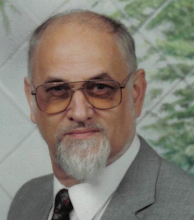 Over the years I have been collecting examples of ePortfolios - the Good, the Bad, the Ugly. Not that I would dare to embarrass anyone by 'rubbishing' their efforts. However, since discovering Scoop.it! I have found a medium that can attractively display a collection of examples which might help both students and staff decide on the content and layout that suits them. See http://www.scoop.it/t/eportfolios-examples
Over the years I have been collecting examples of ePortfolios - the Good, the Bad, the Ugly. Not that I would dare to embarrass anyone by 'rubbishing' their efforts. However, since discovering Scoop.it! I have found a medium that can attractively display a collection of examples which might help both students and staff decide on the content and layout that suits them. See http://www.scoop.it/t/eportfolios-examples
Many examples contain profound glimpses of insight and are a joy to read (or listen to). However, even the best seem to have serious gaps in the total content.
Many examples are little more than a showcase of one's best works along with a CV and a list of contacts. Of these, quite a few, in blog format, document the learners interests, sometimes in far too much detail including descriptions of members of their family and even the cat!
Other examples are little more than the syllabus of the course being followed and links to modules completed.
Some are obviously clearly directed by the institution, others are less directed and are purely the results of an open-ended competition.
Many are just a linear blog listing the meanderings and short-term reflections related to a single course of study.
Few show any sense of long-term reflection, 'lifelong learning', or one's 'life-story'.
Despite our claims that ePortfolios are now a part of our Web.2 culture, I could not find any examples of mentoring (by non-academics), collaboration or peer-review.
I also have a second Scoop.it! collection of discussions and support materials relating to both ePortfolios and foramtive assessment: http://www.scoop.it/t/eportfolios-worldwide




2 comments:
Ray
I never thought I'd see a perfect e-Portfolio though I personally tried to create a learner-centred, course integrated eP myself. Because it is course related, there are challenges: time constraints resulting in minimal collaboration with tutors and peers. Besides once the course is over, tutors and peers are not interested in my progress anymore. I suppose this is when global sharing and being part of a community f practice comes into play. However, students need to be made aware of this while they are on the course so they can become independent learners after graduation. What do you think?
Have you come across a "perfect eP" that you may like to share with us?
Best wishes
Barbara
Thanks, Barbara,
You concise response begs a whole thesis in reply.
Rather than leave my response as just a 'comment' I have decided to write a whole new post just in response to your question.
BW
Ray T
Post a Comment